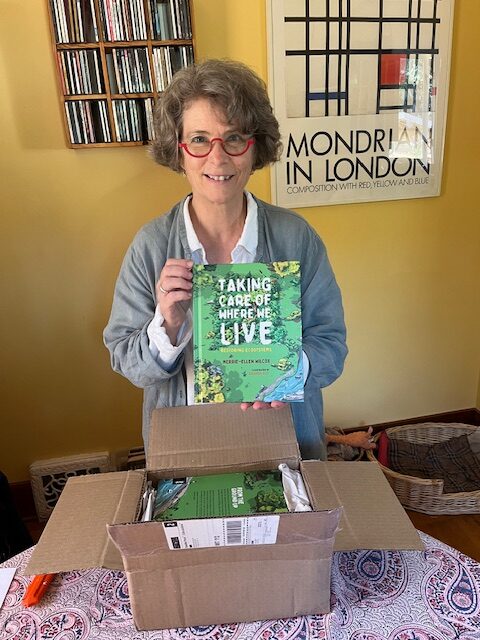Canadians are being encouraged to keep our elbows up, stand together for our sovereignty, and buy Canadian. Could we also (please) spell Canadian?
Words and the apostrophe in 1992
 Twenty-five years ago, when West Coast Editorial Associates was born, I was barely a West Coaster and wasn’t yet an editor. Before moving to Victoria from Toronto in July 1992, I wrote articles for national magazines and reviewed screenplays for the CBC and Telefilm Canada. I had a computer but as yet no email, often delivering my drafts and revisions, usually in hard copy but sometimes on floppy disk, on my bicycle—at least until I moved west and cross-country bicycle delivery wasn’t an option.
Twenty-five years ago, when West Coast Editorial Associates was born, I was barely a West Coaster and wasn’t yet an editor. Before moving to Victoria from Toronto in July 1992, I wrote articles for national magazines and reviewed screenplays for the CBC and Telefilm Canada. I had a computer but as yet no email, often delivering my drafts and revisions, usually in hard copy but sometimes on floppy disk, on my bicycle—at least until I moved west and cross-country bicycle delivery wasn’t an option.
Times have changed since 1992! Words, too. Or not.
Some words have come and (mostly) gone, like “poptastic.” According to HuffPost, this unlovely word arrived in the dictionary in 1992, referring to very good pop music, or more generally to anything fantastic or excellent. Thankfully, it doesn’t seem to have entered the North American lexicon, although it still appears in the Oxford English Dictionary and is a “completely awesome” children’s musical.
Other terms have stuck around. For example, the American Dialect Society’s word of the year for 1992 was “not!” as an expression of disagreement. And its choice for the term mostly likely to succeed was “snail mail”—very prescient, since most of us didn’t yet have email.
And then there is “the apostrophe,” which Lake Superior State University included in its 1992 list of words to be banished, although it wasn’t the word that was to be banished but the thing itself, because of its misuse:
Get rid of it. Ban it. No one knows how to use it. It is a possessive code mark, not an expression or a word. You cannot purchase 24’s of Apple Crisp or 12’s of your favorite cold capsule. There are no do’s; there are don’t’s. There are no MD’s with special training, nor are there CD’s all in one case. Clothiers do not sell sock’s nor do jewelers deal in 1000’s of items. You might as well banish the apostrophe. Too few [people] have the slightest idea how to use one.
Of course, both the apostrophe and its misuse live on. Some things never change.
Comments (1)
Comments are closed.




[…] Editorial Associates in 2017, we’ve looked at our past, present, and future, as well as a few editorial highlights of 1992, the year WCEA was formed. I have recently been looking back even farther, into the 1980s, […]